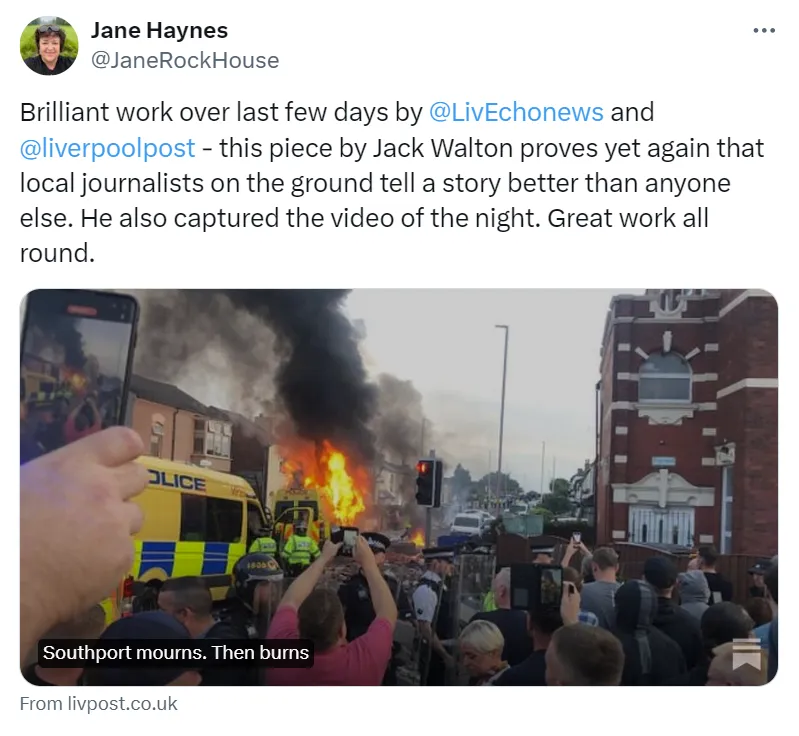Covering an orgy of violence

An editor’s note from Jack
This story is free to read. You just need to sign up to join The Post's mailing list. And why wouldn't you? You'll get our journalism in your inbox the second we publish, keeping up to date on this and all our stories. No card details required.
Join the ListAlready have an account? Sign In

Latest
The lost department stores of Liverpool
From Simone's to Belzan: How a hospitality magnate seduced Liverpool's tastemakers
Last minute drama, local revamps and Liverpool Doc Club
Is Williamson Square Liverpool's own Times Square?
Covering an orgy of violence
An editor’s note from Jack